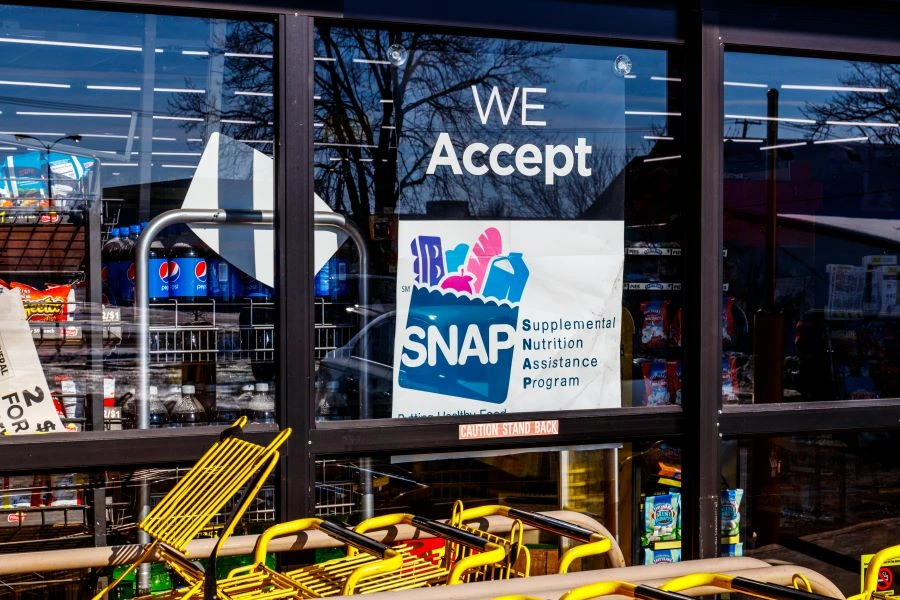End in sight? Trump administration tells states to “undo” paying full SNAP benefits
Key takeaways
- The Trump administration ordered states to reverse full November SNAP benefits, warning of penalties for noncompliance.
- Anti-hunger groups condemn the move, citing rising food insecurity and strong public support for SNAP.
- A tentative deal would fund SNAP through September 2026 amid the shutdown stalemate.

The US Department of Agriculture (USDA) has issued a memo claiming states’ actions to provide full Supplemental Nutrition Assistance Program (SNAP) benefits for November were “unauthorized.” The USDA orders states to “immediately undo any steps taken to issue full SNAP benefits for November 2025.”
The longest government shutdown in US history halted SNAP benefits, affecting millions of US citizens relying on them for food security.
Several states moved toward providing full November SNAP benefits after a Supreme Court administrative stay of a district court order in Rhode Island State Council of Churches v. Rollins, which had required states to resume full SNAP payments.
Additionally, the USDA released guidance on Friday, November 7, stating that it was working to distribute the benefits. However, the new USDA memo tells states to instead process partial SNAP benefits.

Moreover, it warns: “Failure to comply with this memorandum may result in USDA taking various actions, including cancellation of the Federal share of State administrative costs and holding states liable for any overissuances that result from the noncompliance.”
The US advocacy group Food Research and Action Center (FRAC) condemns the action.
Crystal FitzSimons, president, says: “The Trump administration has once again shown its disregard for the well-being of children, people with disabilities, veterans, and working-class Americans by continuing the long, chaotic, and unnecessary delay in distributing November SNAP benefits to the millions of people who rely on the program to put food on the table.”
At the same time, last weekend, the Senate voted 60–40 on a key step toward opening the government after Senate Democrats reached a deal with Republicans and the White House. This tentative agreement would reopen the government until January 30 and would continue funding for SNAP through September 2026.
Anti-hunger program
FRAC’s FitzSimons underscores that SNAP helps ensure struggling families and individuals have access to the nutrition they need to thrive, lifting millions of people out of poverty and boosting revenues for food retailers and farmers.
“The Trump administration all along has had both the power and the authority to ensure that SNAP benefits continued uninterrupted, but chose not to act and to actively fight against providing this essential support,” she states.
 In recent years, over 40 million people in the US used SNAP, which provides financial benefits to households depending on its size, income, and expenses.She adds that the administration’s decision to continue to fight against providing SNAP benefits “furthers the unprecedented humanitarian crisis driven by the loss of the nation’s most important and effective anti-hunger program.”
In recent years, over 40 million people in the US used SNAP, which provides financial benefits to households depending on its size, income, and expenses.She adds that the administration’s decision to continue to fight against providing SNAP benefits “furthers the unprecedented humanitarian crisis driven by the loss of the nation’s most important and effective anti-hunger program.”
FitzSimons points to a recent survey finding that nearly 80% of voters across party lines want the government to use emergency funds to pay for November SNAP benefits, with 78% of voters having a favorable opinion of SNAP.
Earlier this year, the US Senate’s “Big Beautiful Bill” also axed SNAP nutrition education and restricted access. In response, US Congress officials introduced the Closing the Meal Gap Act of 2025 in September to raise SNAP benefits in an attempt to reduce food insecurity.
Consumer concerns
New polling from Feeding America also shows public concern over people impacted by the shutdown.
Linda Nageotte, the organization’s president and chief operating officer, says: “Families, seniors, veterans, and people with disabilities are showing strength through the hardship, and their communities are standing beside them — giving their time and money, and advocating so no one faces hunger alone.”
The poll notes that 72% of US citizens are concerned over the shutdown, and 71% are worried about the government’s ability to pay SNAP benefits.
Additionally, respondents stated that the continued shutdown will likely increase hunger (77%), drive more people to food banks (91%), force families to skip meals (83%), or lead them to choose less healthy foods (85%).
“Many people have faced impossible choices as they wait for benefits and missed paychecks,” says Nageotte. “Leaders must act quickly to end the shutdown so people can move forward with dignity and stability.”
The Senate’s vote has advanced the amended bill to fund the government until January 30, which will need to be passed in the Senate, approved by the House of Representatives, and sent to President Donald Trump for his signature to fully end the shutdown.












